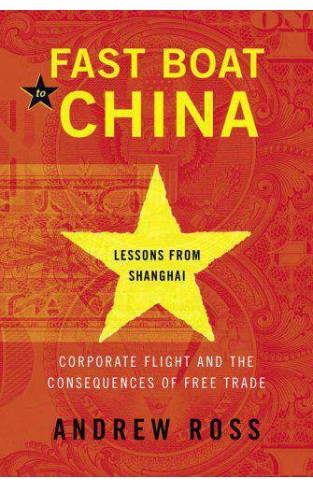Fast Boat to China: Corporate Flight and the Consequences of Free Trade; Lessons from Shanghai
Fast Boat to China: Corporate Flight and the Consequences of Free Trade; Lessons from Shanghai
By:
-
Rs 595.00
- Rs 2,380.00
- Ex Tax :Rs 595.00
- Price in loyalty points :595
You saved Rs 1,785.00.
Due to constant currency fluctuation, prices are subject to change with or without notice.
We are offering a high discount due to slightly damage.
Corporate outsourcing has bitterly divided advocates and critics of free trade; the transfer of jobs overseas to cheaper locations has had a profound effect on dislocated employees and their communities, and, increasingly, it is the high–skill, white–collar positions that are feeling the impact.
In Fast Boat to China, Andrew Ross looks at the controversial issue of offshore outsourcing to China—specifically that of white-collar jobs at U.S. global manufacturing and high-tech companies.
Having spent a year talking with skilled local employees and their foreign managers in Taiwan, in Shanghai, and in the far west of China, Ross reports on China’s workforce, where employees, for the first time, are emulating a corporate mentality of job–hopping as a way of life. Ross looks as well at the effects of foreign investment on China’s (newly capitalist) economy and at how multinational companies such as GM, GE, Philips, Lucent, IBM, and Motorola are taking advantage of Chinese nationalism in planning for their future growth there.
The author makes clear the impact of globalization on Chinese workers, who, he discovered, have become as insecure as their Western counterparts. He reports on the daily reality of corporate free trade and how it doesn’t at all correspond to its classical definition . . . how India and China, the world’s two most populous countries, are competing for low–paying jobs and affecting the growth of white–collar jobs in Asia . . . and, finally, how China’s huge gains in technology will soon allow it to compete for top–level jobs at the same time that it absorbs lower-end jobs, and how this will affect workers and economies in East Asia and the West.



